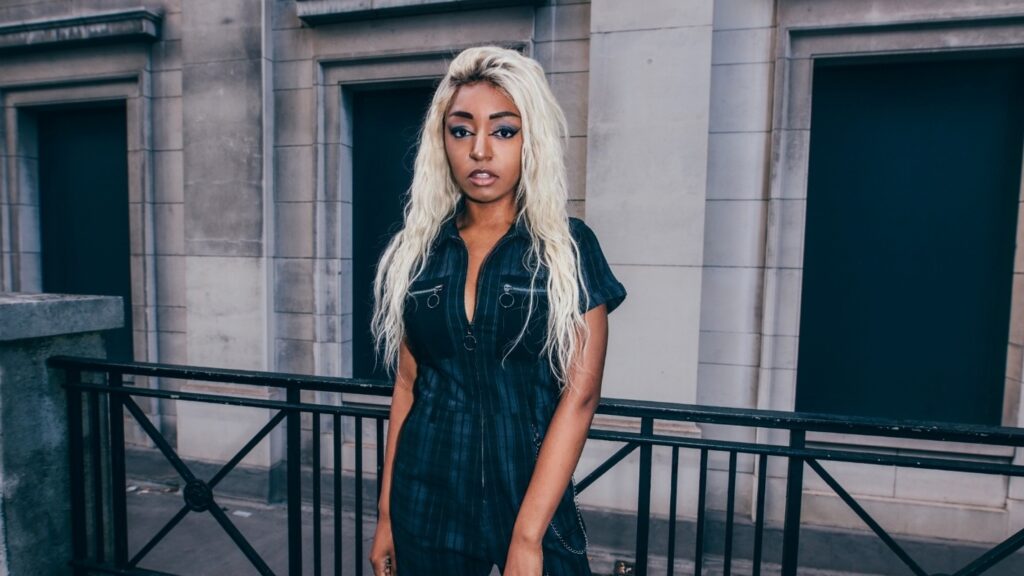Yasmin Benoit: ‘It’s time for asexuality to be legally recognised’
Opinion: To mark Asexuality Awareness Week (22-28 October) activist Yasmin reflects on the legal status of her community ahead of the release of her Stonewall report

‘Asexual rights’ is not a combination of words that you hear very often, but it should be. You’ll mainly find it in certain corners of internet culture. For some, it’s a meme, a joke. For others, it’s a battle cry, a call to arms. This Ace Week, it’s time to emphasise the latter. At the end of this week, Stonewall and I will release the first ever report into asexual experiences and discrimination in the UK. The compilation of qualitative research, case studies, and policy recommendations will provide invaluable insight into an increasingly large group whose voices often go unheard. It’s been two years in the making, but it’s been needed for much longer than that.
When I stumbled into the world of activism, I just wanted to diversify and push the conversation around asexuality forward, in the hopes of bringing a different perspective and changing the way people see asexuality. At the very least, I wanted to attempt to fill the blatant gap in Black asexual representation, a gap which has made my experience as an asexual woman so much harder. It started with a social media post on National Coming Out Day in 2017, something I thought that a few people might be able to relate to. I could never have anticipated that six years later, almost to the day, I would be preparing to lead the UK’s first asexual rights initiative with one of the most influential LGBTQIA+ organisations in the world.
“Asexuality is still medicalised in the International Classification of Diseases as ‘hypoactive sexual desire disorder'”
The progression to this point has felt surprisingly natural, as I have long-since been aware of the issues facing the asexual community, and the startling lack of work being done about it. It was in 2018, while at the UK Asexuality Conference, I spoke to an asexual person who told me about their experience of having medical professionals attempt to ‘fix’ their asexuality, and the lasting impact that had on them mentally. It was the first time that I heard of what can only be described as conversion therapy happening to an asexual person, but unfortunately, it wouldn’t be the last.
It reminded me of an experience I had at university when I visited a counsellor about exam stress. She asked me about my relationship history and sexuality, and once I mentioned being asexual, she assumed that was what I was there to ‘resolve.’ The only reason why I was able to shut that down was because I had discovered asexuality in secondary school and by this point, felt comfortable and validated in my experience. Not everyone is so lucky, not everyone has access to that information or has worked themselves out by the time a professional suggests they need to be ‘cured’. I could easily see how an asexual person could unwittingly go down that path.
It was why I wasn’t surprised when the National LGBT Survey (2018) found that asexual people are 10% more likely to be offered or to undergo conversion therapy than other orientations. This is made possible by a combination of factors. Asexuality is still medicalised in the International Classification of Diseases as ‘hypoactive sexual desire disorder.’ This means that if someone were to describe asexuality to a healthcare professional who wasn’t informed about the sexual identity, they’re more likely to be told to undergo treatment than to have that recognised as part of who they are, leading to our higher conversion therapy rates. At the same time, asexuality isn’t recognised as a sexual orientation under the UK Equality Act 2010 either, and thus doesn’t receive the same protections as other sexual identities. It’s an issue unfortunately reminiscent of those faced by other queer orientations in the past.
Throughout my years of working as an activist for this community, I’ve continued to encounter similar stories over the years – not just of medical discrimination, but of the fear, isolation, prejudice, and alienation that aces experience at work, in education and other aspects of their lives. These are all conversations which tend to take place within ace spaces, and rarely leave them. When they do, the wider LGBTQ+ community tends not to pay attention. We have seen this with campaigns to ban conversion therapy in the UK, something the Conservative government has been slacking on for five years. There was a justified outcry about trans and non-binary people being included in the ban, but crickets when asexual people weren’t included either.

It’s a recurring theme when it comes to the asexual community, or anyone who falls beyond the Q in LGBTQIA+. The UK is behind when it comes to asexual rights, but recognising our legitimacy is not a far-fetched dream. After all, New York passed the Sexual Orientation Non-Discrimination Act all the way back in 2003. That was the only piece of legislation in the world to specifically mention asexuality as one of the protected sexual orientations until 2023, when Tasmania became the first state in Australia to officially recognise asexual, aromantic and agender people. The spokesperson for Equality Tasmania, Dr Lucy Mercer-Mapstone, stated that, “This is the first step forward to including their needs and acknowledging their existence in policy decisions and services in Tasmania.” Our government has no such interest and has made no such promises.
Even though the National LGBT Survey showed glaring disparities for asexual people, there was no inclination to dig deeper into why that was. I waited, just like aces across the country did, for something to change. But very little seemed to be happening. Then, I decided to do what I had always strived to do: push the conversation forward. In 2021, I approached Stonewall to see what we could do to help the asexual community in the UK receive the recognition and protection that it deserves. It was then that we established the Stonewall x Yasmin Benoit Ace Project, which would begin with a report into asexual experiences.
On International Asexuality Day 2022, the project was launched to an overwhelmingly positive reception from the ace community and our allies. It was also met with harassment and ridicule from more right-wing online figures, who saw the topic of ‘asexual rights’ as an oxymoron and weren’t keen on Stonewall’s choice of partner. Nonetheless, we began to recruit participants to take part in our focus groups and one-to-one interviews. A year later, after many hours of planning, research, coding, transcribing, writing, editing, and organising, the report is nearly here.
It is only the beginning, but it is an essential first step for the UK to start understanding, accepting and advocating for the asexual community. Aces deserve equality. Aces deserve protection. Aces deserve recognition. Aces deserve support. Aces deserve to be heard. Not just during Ace Week but all year round.
For information about Yasmin and Stonewall’s asexuality research, click here.
For more information about Ace Week, visit the official website.
